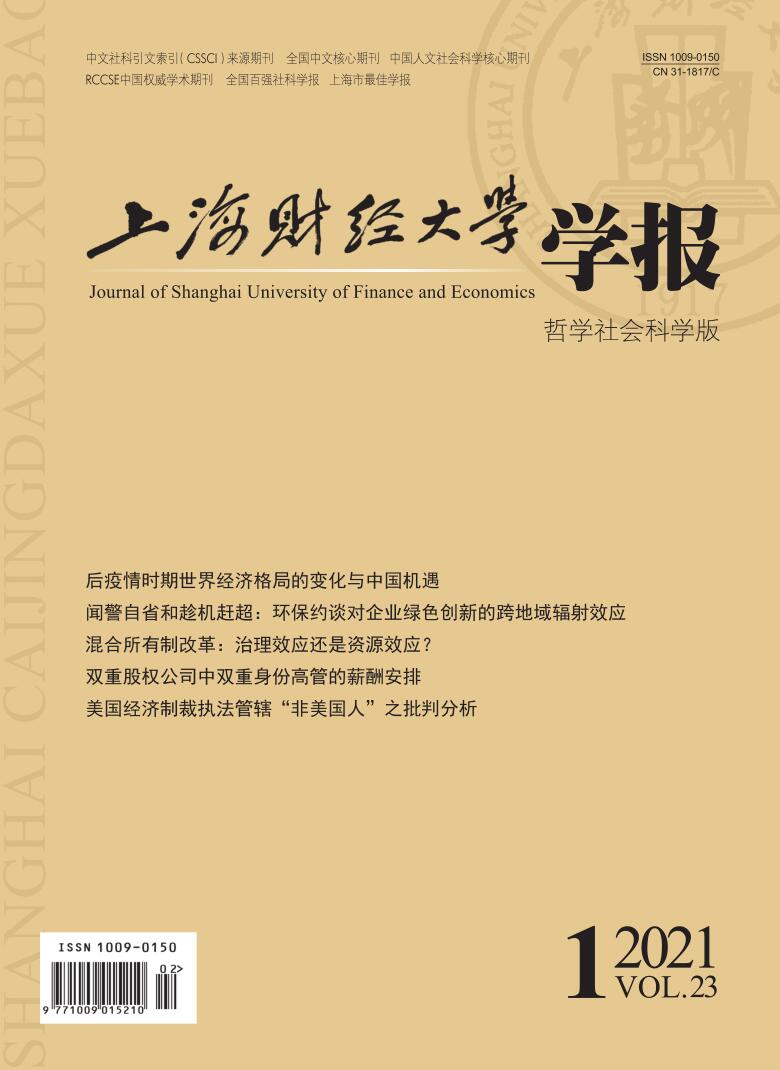新冠肺炎疫情扰乱了企业正常的工作秩序,很多员工的身心健康经受了前所未有的焦虑、折磨与挑战,使其幸福感和工作投入度降低。员工工作幸福感是健康组织的重要标准,疫情情景下需要诉诸能驾驭不确定性的新型领导行为来提升员工的工作幸福度。文章基于自我决定理论和资源保存理论,探讨了量子型领导对员工工作幸福感的影响及其传导机制。研究发现量子型领导对个人组织匹配和员工工作幸福感有显著的正向影响,当员工越是处于高情绪衰竭时,个人组织匹配对员工工作幸福感的影响越强。文章为企业在管理实践中从培育量子领导力、提升个人组织匹配度、消解员工情绪衰竭方面提升员工工作幸福度提供理论支持和实践参考。
疫情不确定情景下量子型领导会提升员工工作幸福感吗?——个人组织匹配与情绪衰竭的作用
摘要
参考文献
2 丹娜•左哈尔. 量子领导者: 商业思维和实践的革命[M]. 北京: 机械工业出版社, 2016.
7 辛杰. 量子管理: 不确定时代的管理变革[M]. 北京: 机械工业出版社, 2020.
11 Cable D M,Parsons C K. Socialization tactics and person–organization fit[J]. Personnel Psychology,2001,54(1):1–23. DOI:10.1111/j.1744-6570.2001.tb00083.x
12 Danna K,Griffin R W. Health and well-being in the workplace:A review and synthesis of the literature[J]. Journal of Management,1999,25(3):357–384. DOI:10.1177/014920639902500305
13 Deci E L,Olafsen A H,Ryan R M. Self-determination theory in work organizations:The state of a science[J]. Annual Review of Organizational Psychology and Organizational Behavior,2017,4:19–43. DOI:10.1146/annurev-orgpsych-032516-113108
14 Depoux A,Martin S,Karafillakis E,et al. The pandemic of social media panic travels faster than the COVID-19 outbreak[J]. Journal of Travel Medicine,2020,27(3). DOI:10.1093/jtm/taaa031
15 Eichenbaum M S, Rebelo S, Trabandt M. The macroeconomics of epidemics[R]. NBER Working Papers 26882, 2020.
17 Guan Y J,Deng H,Zhou X Y. Understanding the impact of the COVID-19 pandemic on career development:Insights from cultural psychology[J]. Journal of Vocational Behavior,2020,119:103438. DOI:10.1016/j.jvb.2020.103438
18 Hobfoll S E,Halbesleben J,Neveu J P,et al. Conservation of resources in the organizational context:The reality of resources and their consequences[J]. Annual Review of Organizational Psychology and Organizational Behavior,2018,5:103–128. DOI:10.1146/annurev-orgpsych-032117-104640
19 Holt-Lunstad J,Smith T B,Baker M,et al. Loneliness and social isolation as risk factors for mortality:A meta-analytic review[J]. Perspectives on Psychological Science,2015,10(2):227–237. DOI:10.1177/1745691614568352
20 Hsing A, Zhang J S, Peng K, et al. A rapid assessment of psychological distress and well-being: Impact of the COVID-19 pandemic and shelter-in-place (4/17/2020)[EB/OL]. https://ssrn.com/abstract=3578809, 2020-04-17.
21 Karatepe O M,Tekinkus M. The effects of work-family conflict,emotional exhaustion,and intrinsic motivation on job outcomes of front-line employees[J]. International Journal of Bank Marketing,2006,24(3):173–193. DOI:10.1108/02652320610659021
22 Kim T Y,Cable D M,Kim S P. Socialization tactics,employee proactivity,and person-organization fit[J]. Journal of Applied Psychology,2005,90(2):232–241. DOI:10.1037/0021-9010.90.2.232
23 Kristof A L. Person-organization fit:An integrative review of its conceptualizations,measurement,and implications[J]. Personnel Psychology,1996,49(1):1–49. DOI:10.1111/j.1744-6570.1996.tb01790.x
24 Lauver K J,Kristof-Brown A. Distinguishing between employees’ perceptions of person-job and person-organization fit[J]. Journal of Vocational Behavior,2001,59(3):454–470. DOI:10.1006/jvbe.2001.1807
25 Lee R T,Ashforth B E. A meta-analytic examination of the correlates of the three dimensions of job burnout[J]. Journal of Applied Psychology,1996,81(2):123–133. DOI:10.1037/0021-9010.81.2.123
26 Maslach C, Jackson S E. Burnout in health care professions: A social psychological analysis[A]. Social psychology of health and illness[C]. Hillsdale, NJ: Erlbaum, 1982.
27 Maslach C,Schaufeli W B,Leiter M P. Job burnout[J]. Annual Review of Psychology,2001,52:397–422. DOI:10.1146/annurev.psych.52.1.397
29 Page K M,Vella-Brodrick D A. The ‘What’,‘Why’ and ‘How’ of employee well-being:A new model[J]. Social Indicators Research,2009,90(3):441–458. DOI:10.1007/s11205-008-9270-3
30 Rahimnia F,Sharifirad M S. Authentic leadership and employee well-being:The mediating role of attachment insecurity[J]. Journal of Business Ethics,2015,132(2):363–377. DOI:10.1007/s10551-014-2318-1
31 Resick C J,Baltes B B,Shantz C W. Person-organization fit and work-related attitudes and decisions:Examining interactive effects with job fit and conscientiousness[J]. Journal of Applied Psychology,2007,92(5):1446–1455. DOI:10.1037/0021-9010.92.5.1446
32 Ruiz-Palomino P,Martínez-Cañas R,Fontrodona J. Ethical culture and employee outcomes:The mediating role of person-organization fit[J]. Journal of Business Ethics,2013,116(1):173–188. DOI:10.1007/s10551-012-1453-9
33 Ryff C D. Happiness is everything,or is it? Explorations on the meaning of psychological well-being[J]. Journal of Personality and Social Psychology,1989,57(6):1069–1081. DOI:10.1037/0022-3514.57.6.1069
34 Schaufeli W B, Leiter M P, Maslach C, et al. The maslach burnout inventory-general survey[A]. Maslach C, Jackson S E, Leiter M P. MBI manual[M]. 3rd ed. Palo Alto, CA: Consulting Psychologists Press, 1996.
35 Schaufeli W B,Leiter M P,Maslach C. Burnout:35 years of research and practice[J]. Career Development International,2009,14(3):204–220. DOI:10.1108/13620430910966406
38 Wilson M G,DeJoy D M,Vandenberg R J,et al. Work characteristics and employee health and well-being:Test of a model of healthy work organization[J]. Journal of Occupational and Organizational Psychology,2004,77(4):565–588. DOI:10.1348/0963179042596522
39 Yang L Q,Che H S,Spector P E. Job stress and well-being:An examination from the view of person-environment fit[J]. Journal of Occupational and Organizational Psychology,2008,81(3):567–587. DOI:10.1348/096317907X243324
42 Zohar D. The quantum self[M]. New York: Harper Perennial Publishers, 1991.
43 Zohar D. Rewiring the corporate Brain: Using the new science to rethink how we structure and lead organizations[M]. San Francisco: Berrett-Koehler Publishers, 1997.
引用本文
辛杰, 屠云峰, 焦文浩. 疫情不确定情景下量子型领导会提升员工工作幸福感吗?——个人组织匹配与情绪衰竭的作用[J]. 上海财经大学学报, 2021, 23(1): 15-26.
导出参考文献,格式为:






 5126
5126  8179
8179

